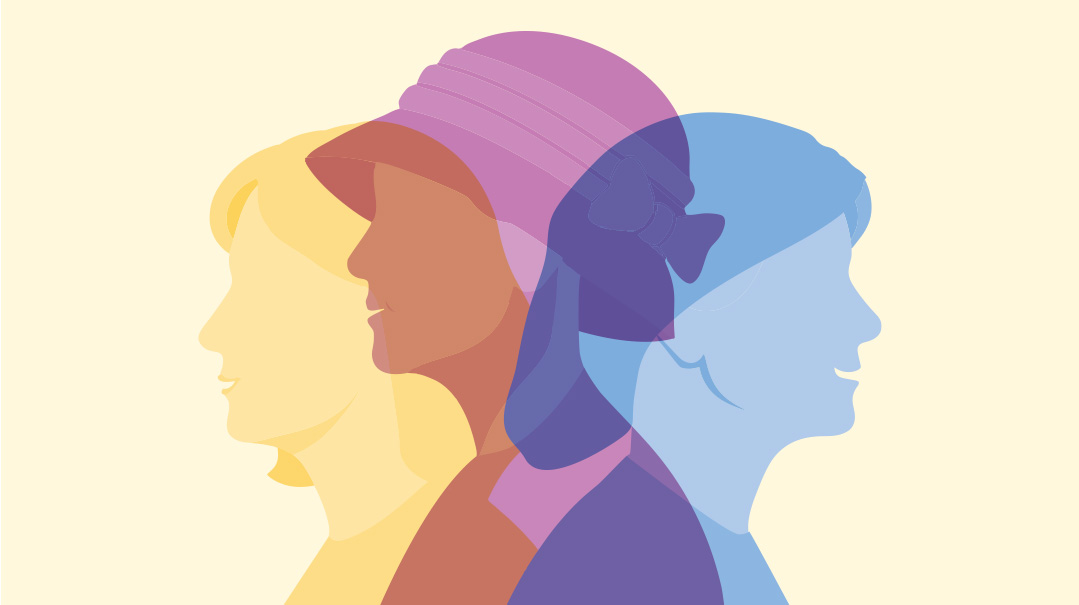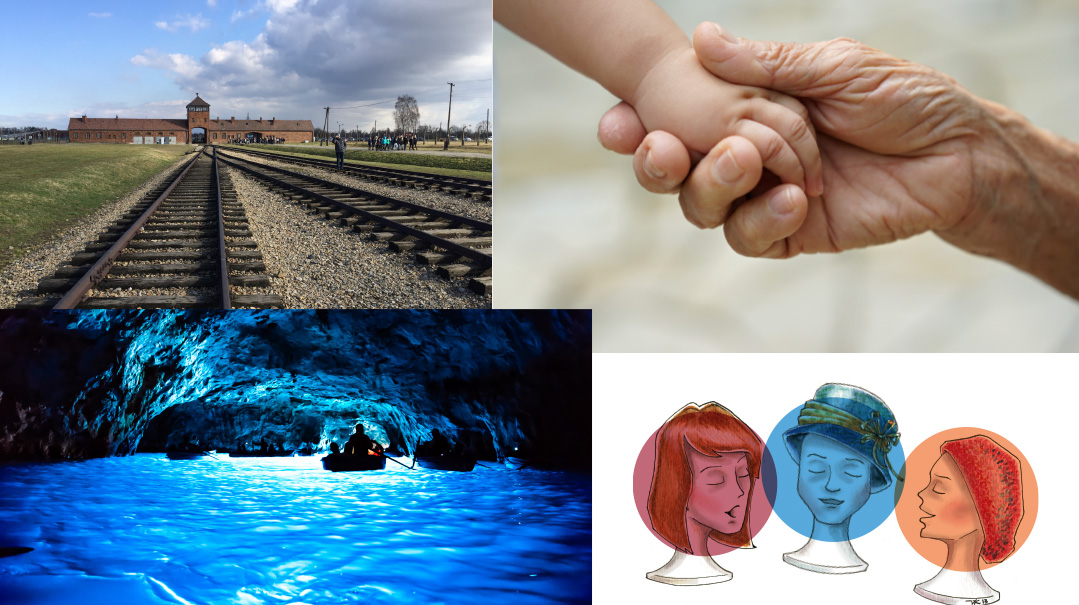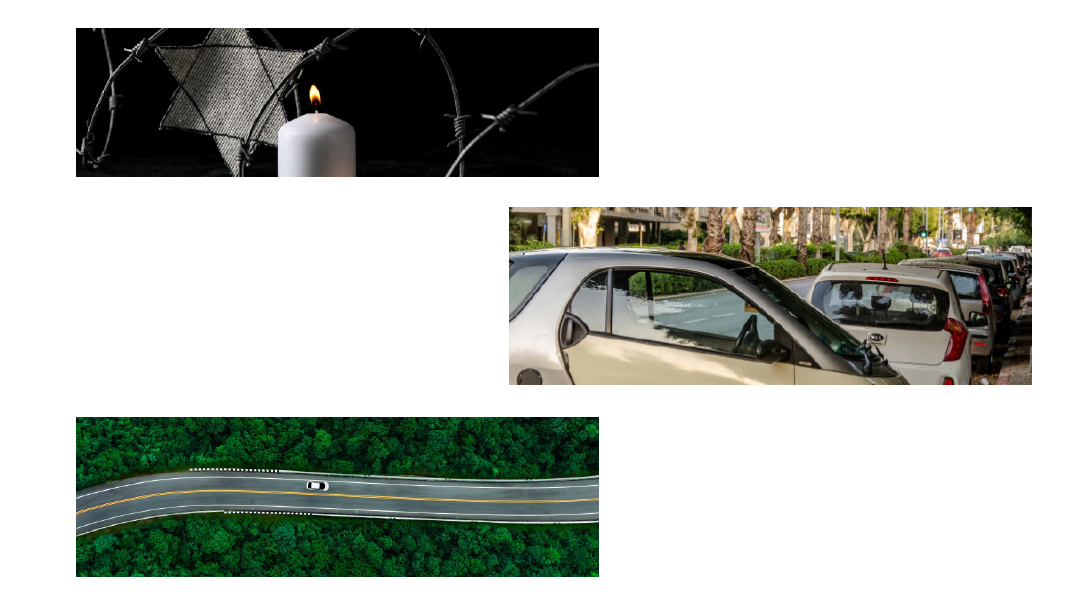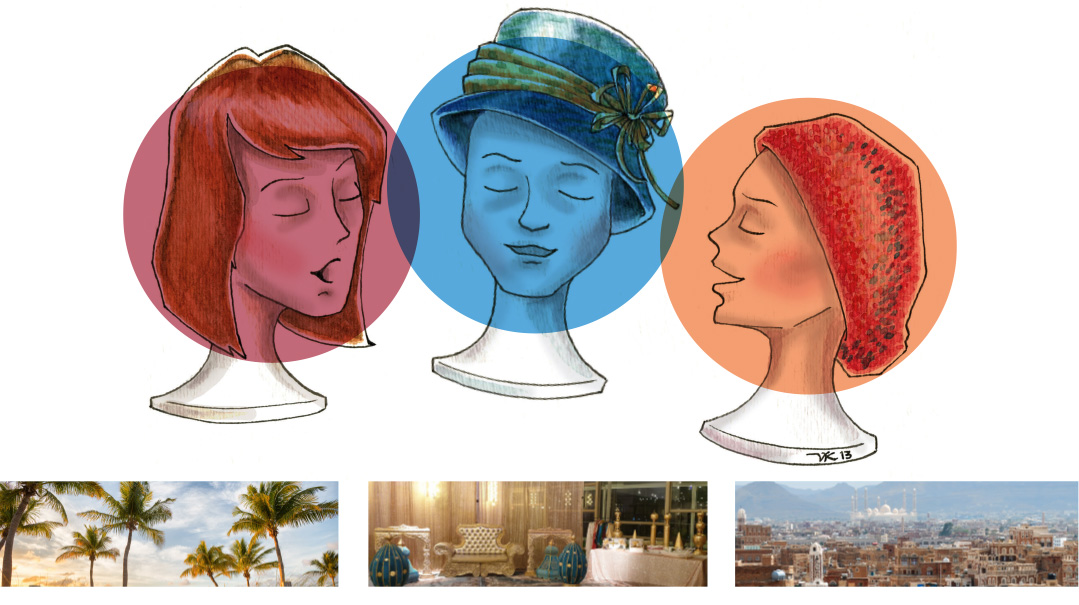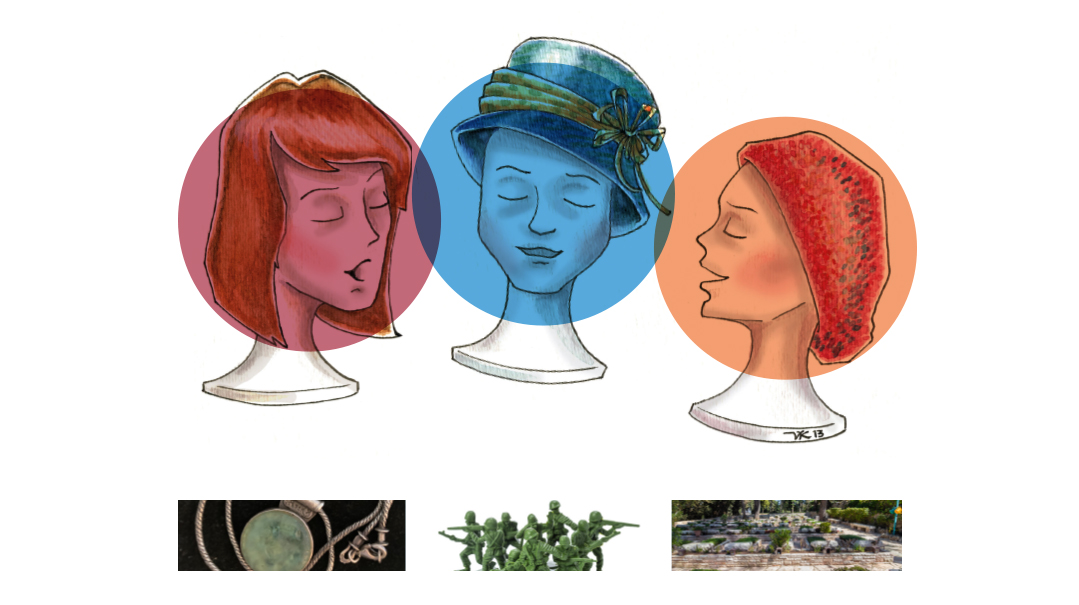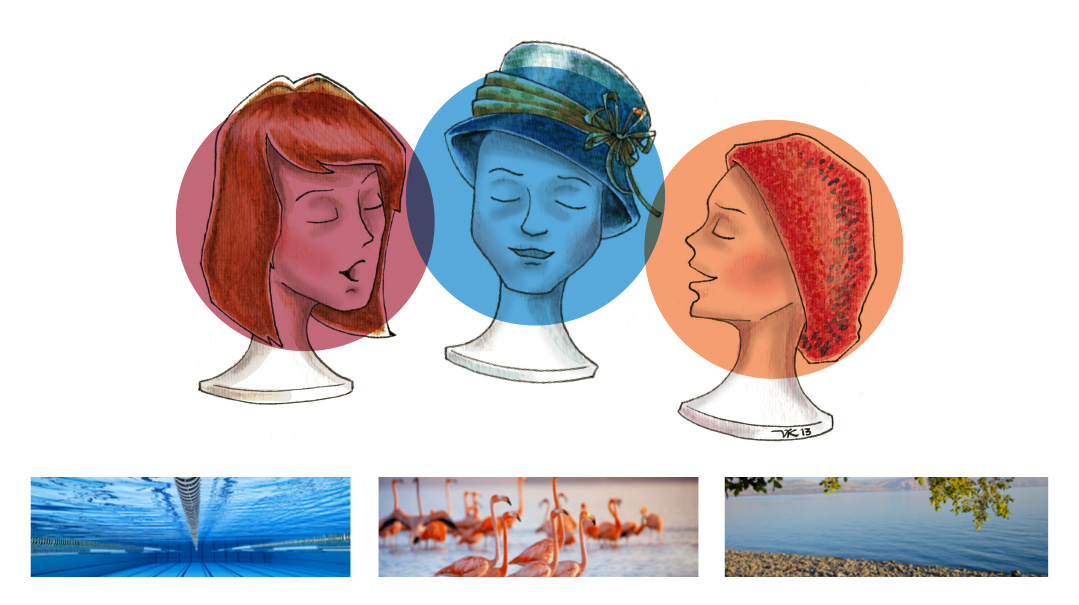BFFs… Best Friends Forever
| August 19, 2020However the BFF friendship starts, it’s a relationship to be treasured
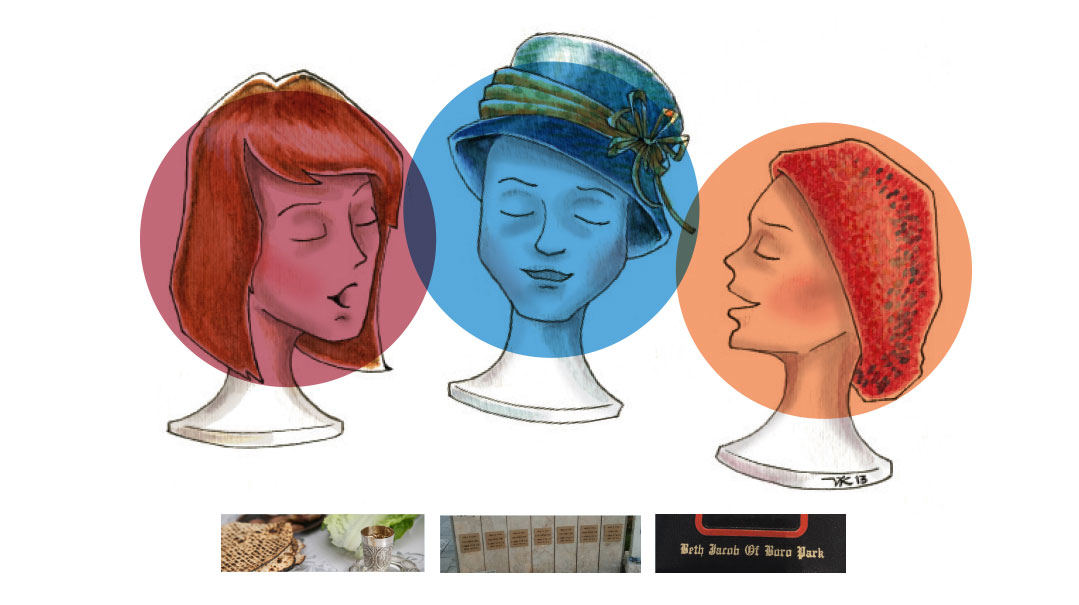
What creates friendships that last?
Sometimes, with our oldest friends, it’s shared memories: being the two jump rope “enders” together; choosing each other for the Machanayim team when either was captain; sharing a bunk, giggles, and extra desserts at camp.
Then there are same-age-same-stage friends. Sem roommates, cramming together at final exam time; young mothers, sharing their children’s first steps; mothers of older kids, comparing shidduch and wedding stories; grandmothers, coping with a pandemic that keeps them from hugging their grandchildren.
However the BFF friendship starts, it’s a relationship to be treasured. We Sisters are acutely aware of this now because we just lost a dear friend. Mirel Weinberger, a’h, has been a friend since elementary school. Her intelligence, kindness, grace, and emunah made her an FFL: a friend for life. Her recent petirah left us devastated — and inspired. We chose friendship as our theme as a tribute to Mirel.
By the time of her shloshim, Mirel’s BFFs from elementary and high school completed more than 20 books of Tehillim in her memory, created a daily shmiras halashon shiur, gave tzedakah to her shul. We laughed at the old stories, cried at our loss, shared memories and grief and friendship in a way that Mirel herself would have loved.
We’ll always remember her. Because a BFF is… forever.
L’illui nishmas Mirel Devorah bas R’ Elimelech
Emmy Leah recalls….
Troublesome Times
Aaaah, memories.
I sit and revel in memories of old friends. Me, Mimi, and Bev. That’s how I remember us three. Ungrammatical, yes, but we weren’t boxed in by grammar rules. And we weren’t boxed in when we played our imagination games, either.
As “The Masked Marauders,” we’d race through alleyways in neighboring apartment blocks, wearing homemade masks. Super-heroes fighting for — and to be honest, sometimes against — truth and justice. When feeling less destructive, we’d create rooms from abandoned shoeboxes and faded wallpaper samples discarded by a local store. We delighted in rooms that would make an interior designer cringe.
And then there were songs. At 11 years old, every feeling and thought begged to be put to music. We’d sing our frustrations with school, sing our likes and dislikes, sing our simple joy in friendship.
With all that music in our lives, inevitably we created our own singing group, with its own theme song:
In June of 1967
Three kids who were about eleven
Formed a group called the Troublesome Trio
And now they are famous wherever they go…
Wait a minute. June of 1967?
Ouch, memories….
***
I don’t remember when I realized the sinister significance of that song, but I do remember where. On old Beit Shemesh’s main street, there’s a memorial to seven local boys who fell in the Six Day War, some in the Golan, most in the fierce fight for Yerushalayim’s Abu Tor neighborhood, the battle that helped liberate the Old City.
I’d been cheerfully humming the old song to myself when I passed the stone monument engraved with names of the fallen soldiers.
And that’s when it hit me. June 1967 — when Israelis were fighting for their lives — me, Mimi, and Bev were… composing silly songs.
What were we thinking?!
I tried to comfort myself. Maybe we wrote the song in the first days of June, before the war.
So when Jerusalemites were measuring out mass graves, expecting, G-d forbid, a massacre, we were singing our theme song? Small comfort there.
Or maybe we made up the song after Israel’s miraculous victory in just six days?
So when Jerusalemites sang songs of praise to Hashem for returning the Kosel and Har Habayis to our hands, we were creating our Troublesome Trio. That’s comfort?
Darkness had fallen on my sunshiny memories of those days of song and friendship.
Darkness that lifted only recently, not through song, but through a story told by another friend.
By my Yerushalmi friend. Noya.
***
When coronavirus shut down our shul, taking our women’s shiur with it, we began a Shabbat-Shiur-on-Sunday-Night Zoom, so we could invite speakers from anywhere in the world. Like my friend Noya, now living in Rochester.
My friendship with Noya is more recent than the Masked Marauders era, but it still goes back decades. We met as new mothers and shared years of child-raising and tea-drinking before our paths parted. We’ve kept up all this time, and for Yom Yerushalayim I invited Noya to join our Zoom and share memories of June 1967, when she attended high school in Jerusalem.
Noya described the stressful days before the war. Her parents — her mother a seventh generation Yerushalmit; her father a Shoah survivor — had kept them calm despite rumors and fears.
She also described her friends discussing the upcoming war. Did they talk about millions of Arabs massing, preparing for an attack? Did they speak of the alliance of Arab countries, threatening Israel’s extinction?
Sure. But they also talked about how they hoped the war would break out on Monday, so their math test would be cancelled.
And in Noya’s story, I found my comfort.
***
Noya’s story reminded me that children aren’t adults. She remembers vividly the sounds of gunshots as she raced home from school — and she remembers as vividly the joy of a cancelled math test.
Kids don’t understand risk, or fear, or death like adults. They’re not wired to understand the significance of events like adults. And we shouldn’t judge them — or ourselves — like adults.
Today I can remember and mourn the losses of the Six Day War, I can rejoice in the miraculous victory Hashem gave us — and I can continue singing my song of early friendship.
Miriam discovers…
A Lesson from My “Book of Friends”
This is a story of pride and anger and long-held grudges and enlightenment and silliness and friendship.
And autograph books.
I’m told by my teacher friends that autograph books are rarely used anymore. And no wonder: in a world of memes and clips, an autograph book is a low-tech dinosaur.
For the young and curious, an explanation. An autograph book was a smallish volume with a faux leather cover. Upscale models had the word “autographs” or the name of the school proudly embossed in gold. Inside were blank pages, in a variety of pastel colors.
Autograph books actually date back to the 1600s, when students in German universities wrote entries in an “album amicorum,” or “book of friends.” In the 20th century, every elementary school student about to graduate got an autograph book, and the rite of passage began: Going from friend to friend, asking them to inscribe their words of wisdom to you. (If you were best friends, you got to write on the white pages.)
Some entries reflected the wisdom of 13-year-olds; others were unashamedly silly.
My sister read A Tale of Two Cities and she had twins.
My other sister read The Three Musketeers and she got triplets.
Whatever you do, don’t read Birth of a Nation.
Many entries began with this kind of nonsense:
Dated till the Board of Education gets bored of education
Dated till Niagara Falls
Those small “friendship books” were filled with bad poetry… and good memories. My autograph book, though, contained something more. In those pastel pages you could find a grudge that lasted close to 50 years.
***
In addition to our friends, we’d approach teachers and ask them for a message. Morah L. was a teacher I admired, and I offered her a precious white page. “Brachah v’hatzlachah b’chol maasei yadechah,” she wrote. I was delighted with the sentiments — until I happened to see Shayna’s book.
Shayna was a nice girl, on the quiet side. She didn’t stand out much in class, except for one thing: her last name. Her father was a choshuve rosh yeshivah, one of the men who’d helped replant Torah in America after the Holocaust.
Morah L. had written two full pages of brachos and messages in Shayna’s book.
Shayna’s father was a rav. My father was a butcher. Her mother was a famous rebbetzin. My mother sewed hems. The message was clear, as clear as dark blue ink on a shiny white page: You and your family are just not as important.
It hurt.
***
Though, thankfully, many of the girls who were writing silly ditties in eighth grade have stayed my lifelong friends, the autograph book disappeared in the relentless passing of time. I can’t say I thought of it often, but when I did, along with laughter at its “Roses are red, violets are blue” brand of poetry, there was a pang, a flash of anger, at Morah L., at quiet little Shayna, at a world that divided people into “choshuve” and “not-so-choshuve” Jews.
Decades later, I was attending a mussar vaad, and we were exploring the middah of anger. Suddenly, unexpectedly, I was sharing the story of my autograph book, my wounded feelings, the insult I felt had been hurled at my parents.
Gently, our vaad leader showed me how to reframe the story, how to understand it not the way a pouting adolescent would, but as a believing, grownup Jew. Hashem knows a person’s battles and true accomplishments, she said, and “up there” everyone gets the honor they deserve.
Surely, my parents’ sacrifices for Yiddishkeit are properly valued. But a person like Shayna’s father brought not a family, but thousands of families, back to Torah. For that, and for his own Torah knowledge, he deserves recognition in This World as well as the Next.
With those wise words, half a century of anger and hurt simply melted away.
After 8 long years I would like to say / we’ve been friends all the way.
My autograph book had (not after 8 years, but after 50!) now truly become a “friendship book” — celebrating the bonds of love that should connect every Jew to each other.
Thanks to my friends Chayie Fisch and Chaya Sarah Fogel for sharing their autograph books with me!
Marcia builds a second family with…
The Corona Sisters
What do you do when your plans start crumbling? When you face life-altering decisions all alone? So alone…
Do you:
(A) cry?
(B) feel sorry for yourself?
(C) kvetch?
(D) sink into a funk?
(E) daven to Hashem?
(F) All of the above?
&&end letter list%%
Me… I’m an “F.”
***
One major corona decision: what to do about Pesach. Like so many Yiddin, I planned months in advance. I was going to Israel. The tickets were bought. The apartment was rented —in a Har Nof building across the street from my daughter and next door to my sister Mimi. The shopping lists and the to-do lists were growing daily.
Then coronavirus hit, slowly overtaking our lives. As the post-Purim days slipped away, it became clearer: I needed a backup plan. So I bought another plane ticket — to Florida, where I could spend Pesach with my son and his family.
But Plans A and B both started to disintegrate. First the Israel flight: canceled. Then the Florida flight: canceled. Plan C: Pesach with my local kids and grandkids? Becoming a scarier option by the minute. Plan D: Seder invitations from local fellow bubby-zeidie couples facing similar predicaments? Most of them were too terrified to invite a third party.
Plan E: Home alone? For the first time in my entire life? Maybe I could get through most of Pesach. But two Sedorim alone? Unthinkable.
I heard of others who were planning to solo-Seder. Guess they were made of sterner stuff than me. That’s when I resorted to crying, feeling sorry for myself, kvetching, and funk-sinking. But then I heard a voice in my head:
Stop with the self-pity already.
My mother’s voice.
My mother, who’d spent a Pesach in Auschwitz without parents. Without siblings. Without husband and baby. All slaughtered, Hashem yikom damo. All she had left were her “lager shvesters” — her camp sisters. Her new temporary family who gave each other support under horrifying conditions. Conditions far worse than a pandemic.
That’s when my davening option kicked in. And Hashem — with Mommy’s intercession? —answered my prayers.
He sent me Plan F: My Corona Sisters.
My friend Mina lost her husband about six years ago. With her head start over me, she shared pointers on how to survive Shabbos meals alone — a challenge I hadn’t yet faced during my first year as an almanah, when I’d shared each Shabbos with family or friends.
My friend Yaffa lost her husband about three years ago. She faced an even direr situation. Her sister Hadassah, recovering from chemo, had come from Lakewood for a brief visit before the pandemic kicked into full swing. Now she was stuck in Silver Spring. As caregiver to someone who was immunocompromised, Yaffa had to be even more careful than Mina and me.
As we compared our different yet similar situations, Mina and I contemplated having the Sedorim together, just the two of us. Not as awful as solo-Sedering, but still rather pitiful. Then Yaffa and Hadassah stepped in with an incredibly selfless offer: Mina and I could Seder with them.
And so we did.
My first Sedorim, ever, without a single family member. Yet a thoroughly fun and enriching experience. Gloved, seated as far apart as possible, the four of us compared family minhagim, sang Mah Nishtanah in different languages, learned new niggunim and midrashim for various parts of the Haggadah, and shared a meal we’d planned together.
Since Pesach, our friendship has continued to grow. Shabbos lunches at Yaffa’s house. Adding to each other’s online shopping delivery orders. Daily social-distanced 40-minute walks through our beautiful, sparsely populated suburban neighborhood. Communicating via our own Corona Sisters WhatsApp.
***
I had a beautiful dream last night. A toy-sized toddler was running toward me, arms open wide. Though she bore no resemblance to her, I knew it was my granddaughter Raizel. I ran toward her, stooped down, and we melted into a tangle of arms — hugging as if the fate of the world were between us.
Finally unlocking, we gazed at each other with such love, such joy, that we couldn’t take it anymore. So we started hugging again. And again.
Then I woke up.
I’m meeting my Corona Sisters in a few minutes for a walk. I can’t wait to share my dream with them.
(Originally featured in Family First, Issue 706)
Oops! We could not locate your form.
